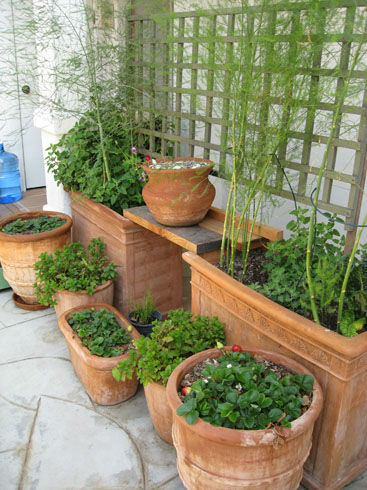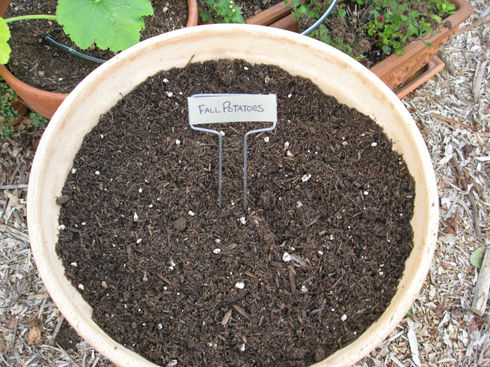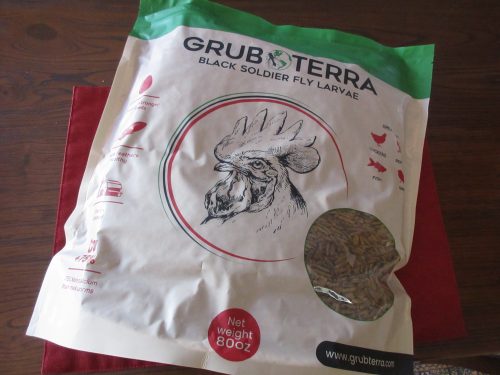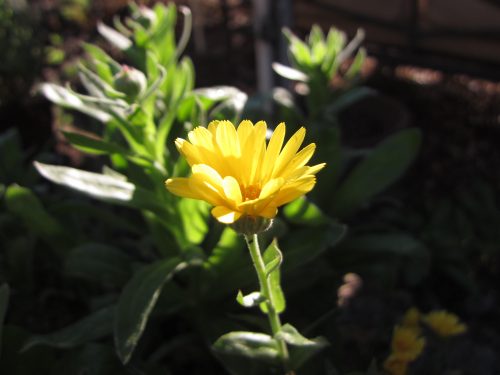Here’s a cool question that came into Ask Gardenerd this week: “Hi Christy, When transplanting plants grown in pots, I usually find large sections of soil that are dry and hard, often near the bottom, but not always. I’ve tried pushing small sticks into the soil to create a channel for water to follow, but it hasn’t helped significantly. Do you have any suggestions on how to keep soil in pots watered evenly? Thanks, Jeff Bremer”
Solutions for Compacted Soil in Pots
Thanks for this great question, Jeff. My first thought is to say, “let’s get more biology into that pot!” Beneficial microbes help keep soil aerated and keep oxygen flowing to plant roots. Containers can bake in the hot sun, which will dry out soils and either make soil microbes go dormant, or kill them altogether.
How do you increase your soil microbes? One way is to mix more biologically active compost into the soil when replanting those containers. Organic matter is food for microbes and biologically active compost has plenty of it.
Inoculate, inoculate, inoculate!
The second is to inoculate plants and pots with aerated compost tea on a regular basis. Chlorinated and chloramineated water kills microbes, so adding biology back to your soil is a good idea.
We recommend services like Compost Teana in Southern California. Some farmers markets have compost tea vendors as well. Or you can make your own compost tea with a bit of education and the right tools.
We offer a simple solution for those who lack the time or enthusiasm to go down the compost-tea-brewing rabbit hole. Custom Biologicals makes fizzy tabs that dissolve in water for easy home inoculation.
Anaerobic = Compaction
Another problem container gardeners face is flooding. In heavy rains or with un-monitored irrigation systems, pots can fill up with water in a day or so and begin to go anaerobic (a non-oxygen environment). Plant roots suffocate and good bacteria die off while anaerobic bacteria begin to multiply. This leads to compacted soils. So make sure the drainage hole is in working order and put pots on plant feet to increase air circulation if needed.
I could tell you to add perlite or some other material to your pots to create more air pockets but the truth is that if your soil lacks the proper biology to aerate, your soil will still become compacted around whatever you add to it. Give these options a try and let us know how it goes.
Thanks for writing in, Jeff. Good luck with your container garden!






Hi Christie, my potted monkey puzzle tree has browning on the ends of each branch. Soil compaction?
Thanks, Anne
I don’t know much about monkey puzzle plants specifically, but usually something like you describe would point to tip burn or drought stress. It usually means too much salinity in the water (and therefore soil) or inconsistent watering. Repotting it might help relieve the first one.
Great Article! Thank you for sharing this is very informative post, and looking forward to the latest one.
Hi so is the solution to re-pot on top of adding compost tea? I have some tomato plants that were doing fine until they starting turning yellow. I believe compacted soil is to blame as it’s dry and had new roots growing up near the top of the soil under the mulch.
Sounds like they may have gotten a lot of shallow waterings rather than deep water less frequently. Compost tea will help break up compaction over time, and covering those new roots with soil and mulch will help protect them from further damage. Tomato leaves naturally start yellowing as they fruit, shifting focus to the fruit instead of the leaves, but keep feeding them to keep up with their nutritional needs as they grow and set fruit. Kelp emulsion will help ease transplant shock if you decide to replant them, but if they have already started fruiting I would not re-pot them. That will be too much stress.
What a great response!
Thx, Jeff
Good and scientific information